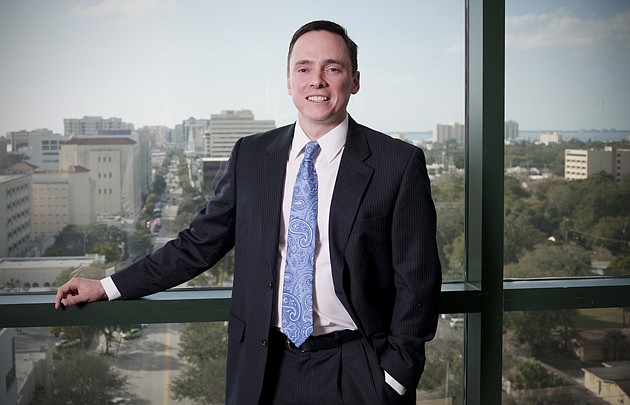- November 25, 2024
-
-
Loading

Loading

Dave Kennon made one mistake when he and his wife, Dalanee, decided to move from Pittsburgh to Sarasota in 2009.
The lifestyle was doubtlessly an upgrade. So too, obviously, was the weather. And, with three young children, being near a large extended family was a tangible plus.
Kennon's miscalculation: The fast success he found in financial planning in Pittsburgh didn't materialize at his new firm, Gulf Coast Insurance Advisors, which has offices in Sarasota and Bonita Springs. Kennon, who taught English in Japan after college, built a thriving money-management business in less than five years in western Pennsylvania. By the time he turned 30, Kennon was a member of the Million Dollar Roundtable, an elite group of financial professionals. His firm, Kenmar Financial Advisors, had 1,000 clients.
“I was living the life,” says Kennon. “I made more money than anyone else I knew.”
But in Sarasota, Kennon, now 36, found the market tough to break into. With proceeds from the sale of his business, which totaled $400,000, Kennon spent $150,000 on marketing and lead generation in his first two years in Sarasota. He took out print newspaper ads. He made speeches at local clubs and groups. He set up investment seminar dinners. But nothing clicked. “Ninety percent of the people only wanted the free steak,” quips Kennon.
Then, in 2011, Kennon honed in on what he calls the life insurance bubble — a widely unrealized quirk of the life insurance business. The discovery: That historically low interest rates could have a negative impact on someone's life insurance policy.
That's because many policies written 20 and 30 years ago, says Kennon, were based on payout calculations that factored in interest rates of 8% to 10%. But with interest rates now significantly lower, the values of those policies could fall drastically.
Several local insurance agents are aware of the potential problem, though some brokers say it can be avoided if a policy is written correctly. “A lot of it depends on how a policy is structured and funded,” says Ric Coffey, a State Farm agent in Sarasota who has been in insurance for nearly 30 years.
Kennon nonetheless has turned the purported bubble into the lead generation lifeblood of Gulf Coast Insurance Advisors, which had revenues in the mid-six figures in 2012. The model, says Kennon, is to draw people into the office on the life insurance bubble issue, then work to convert them to a full money-management client.
“I found an issue, and I'm pounding it,” says Kennon, a Business Observer 40 under 40 recipient last year. “It has revolutionized my practice.”
Pounding, however, isn't cheap. Kennon says he's spent another $150,000 over the last year to get the word out about the looming bubble. That includes TV, radio and Internet ads. The TV spots cost $6,000 a month.
Kennon's long-term goal is to take his insurance bubble-lead generation system national. He recently formed a partnership with a firm in Myrtle Beach, S.C., and has talked with a financial services professional in San Diego. The strategy there, says Kennon, is to go where baby boomers live because that's the demographic that could see the most damage from the issues.
Lead generation, of course, is only one facet of the business. The other side is to turn the leads into clients. Kennon says he currently has about 50 clients/families with a net worth of at least $500,000. His goal is to have 150 high net worth clients within a few years.
The biggest challenge, says Kennon, is educating potential clients that this insurance bubble is a legit problem-in-waiting. “A universal life insurance policy has many parts,” Kennon says. “You can't just buy it and never look at it again.”